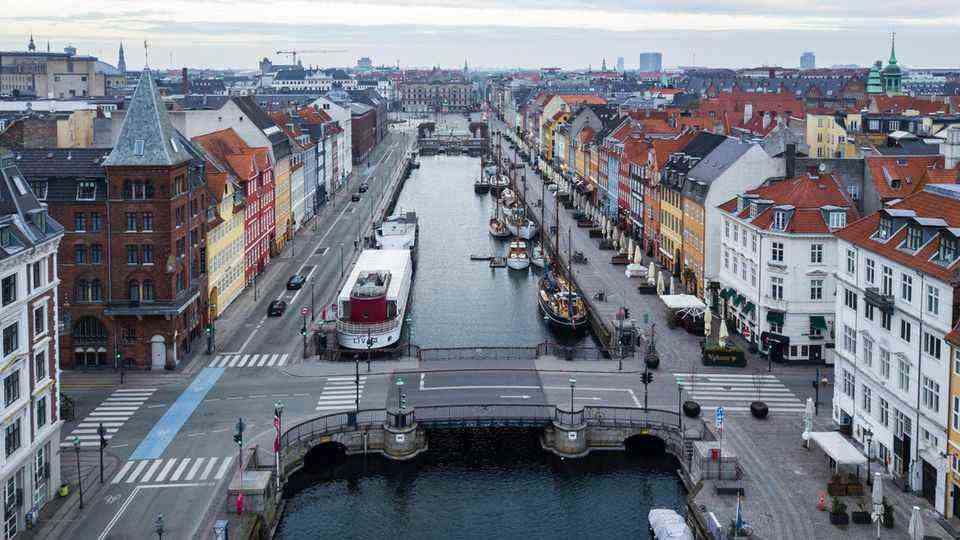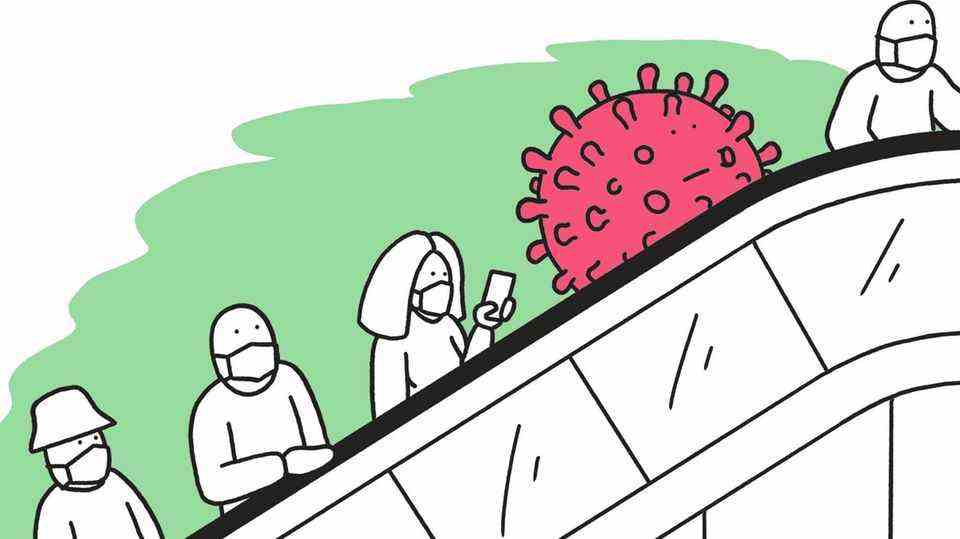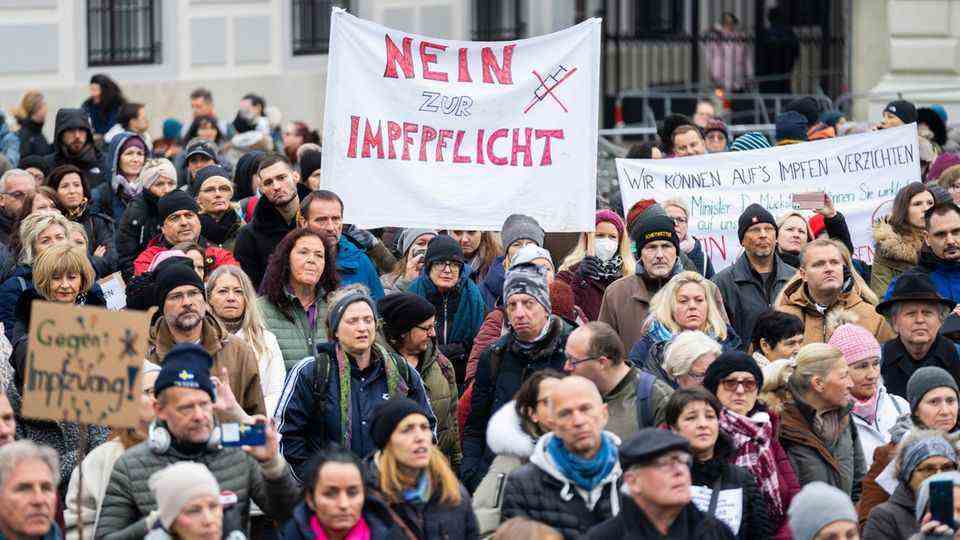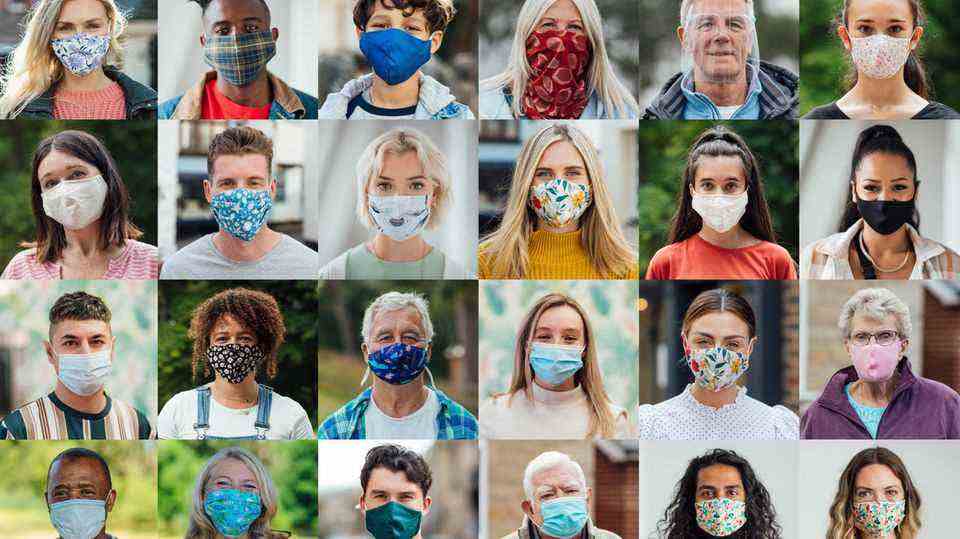Corona measures
Germany is not alone – how our European neighbors are loosening up
This should soon come to an end: tilted chairs and empty tables in front of a café in Amsterdam. In the Netherlands, almost all corona measures are to be lifted on February 18th
© Peter Dejong / DPA
It is as if a noticeable sigh of relief is sweeping through Europe. Not only in Germany, but also in our European neighbors there are intensive discussions about relaxing the strict corona measures. Many countries are already further along than we are.
Now the long-awaited easing of the corona measures should also start in Germany. In the afternoon, Chancellor Olaf Scholz will meet with the prime ministers of the federal states to discuss concrete opening steps.
The following measures from the last draft resolution have already become public:
- As a first step, the contact restrictions for those who have been vaccinated and those who have recovered are to be relaxed in private meetings. The 2G regulation in retail is to be dropped.
- From March 4th, only the 3G rule will apply in hotels and restaurants and not the 2G Plus model as before. This means that unvaccinated visitors (with a daily test) can regain access. In discos and at major events it should remain with 2-G-Plus. In the open air, the maximum capacity is to be capped at 75 percent (or a maximum of 25,000 visitors). A maximum occupancy rate of 60 percent (or a maximum of 6000 people) is planned indoors.
- In a last step, all more far-reaching protective measures, such as the obligation to work from home, could be dropped.
Relaxation of the corona measures: Germany is not alone
Germany is not alone in this. In view of the falling corona numbers, other European countries are relaxing their corona restrictions. For example, Switzerland is largely lifting the protective measures. Access restrictions for unvaccinated people in restaurants, leisure and cultural facilities or at events are to be lifted this week, as the government in Bern has already announced. And this Wednesday she will finally decide whether all other measures will also be ended. However, it is possible that the mask requirement will remain in place on buses and trains, for example.
Netherlands lifts most restrictions
The Netherlands are also lifting most of the corona measures. From Friday, football stadiums, theatres, cinemas and restaurants will again be able to welcome almost unlimited visitors – and they will be open again until 1 a.m. instead of 10 p.m. as before. “The country will be reopened,” Health Minister Ernst Kuipers said in The Hague on Tuesday evening. In view of the declining number of infections, there is reason for optimism. But he also called for caution.
The last step will probably follow in the Netherlands on February 25th: Then the mask requirement will be abolished and also the Corona pass, it said. With the pass, visitors to restaurants, culture and sport still have to prove that they have been tested, vaccinated or recovered. For major indoor events such as festivals, testing will be mandatory in the future. The mask requirement should only apply in local public transport and on airplanes.
The background to this is that in recent weeks the pressure from citizens and companies on the government to lift the measures has increased. Even experts now consider this to be justifiable.
Austria lifts almost all restrictions at the beginning of March
In Austria, almost all restrictions will be lifted from March 5th. From this point on, the government announced on Wednesday in Vienna that masks would only be compulsory in certain areas. Events will then be possible again without restrictions, the curfew will fall and night gastronomy will be allowed. “We have not yet overcome the pandemic,” warned Chancellor Karl Nehammer (ÖVP). But given the stable situation in the clinics, these opening steps are now possible. At the same time, Austria will change its strategy for free mass tests. According to the authorities, the tests, which are free for citizens, had previously cost 2.6 billion euros in tax money.
With a seven-day incidence of 2500 per 100,000 inhabitants, Austria has a significantly higher value than Germany. However, the situation in the clinics is currently stable.
France: Standing coffee and eating on trains allowed again
France also lifted several corona restrictions on Wednesday: discotheques can reopen, concert organizers can offer standing room, and trains can eat again. Drinking coffee while standing at the bar, which is popular in France, is also allowed again. Health Minister Olivier Véran announced that the mask requirement would end in mid-March if the infection rate permitted.
The government had already announced the easing before the current corona wave had peaked. In the meantime, however, it has clearly been exceeded, and the number of infections in France is falling rapidly. Within a week, the number of new infections fell by 44 percent.
Denmark as a pioneer – Sweden, Norway and Finland follow
A little further away from the German borders, significantly fewer corona measures than before have been in force in Finland since Monday. Restaurants and pubs are now allowed to sell alcohol until 11 p.m. and remain open until midnight. A ban on singing and dancing has also been lifted, radio station Yle reported, meaning many Finns can go back to the karaoke bars they love. Restrictions on culture, sport and events are also eliminated.
The Finnish government announced the easing a good two weeks ago. Denmark, Sweden and most recently Norway have already lifted practically all applicable corona restrictions.
In England, which had already lifted the mask requirement in January, those infected should no longer have to go into isolation from the end of February. This would effectively eliminate the last restriction. The step is justified by the fact that the vaccination rate among the over 50-year-olds is correspondingly high.
Italy is not quite so relaxed. The mask requirement outdoors has now been abolished there. Discotheques are also opening again. From yesterday, Tuesday, vaccinations are compulsory for over 50-year-olds in the workplace. Violators face a fine of up to 1500 euros.





